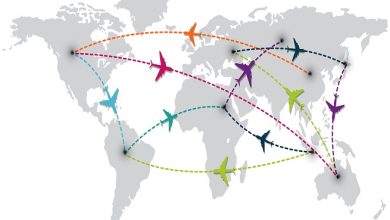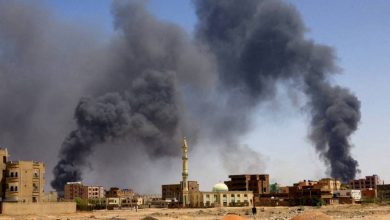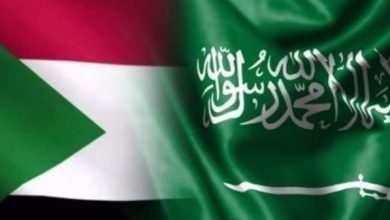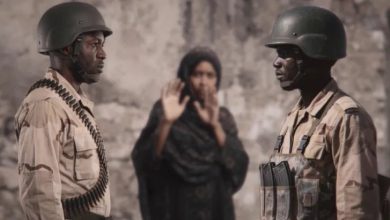Sudan Needs Rwanda as Partner for Peace and Economic Development
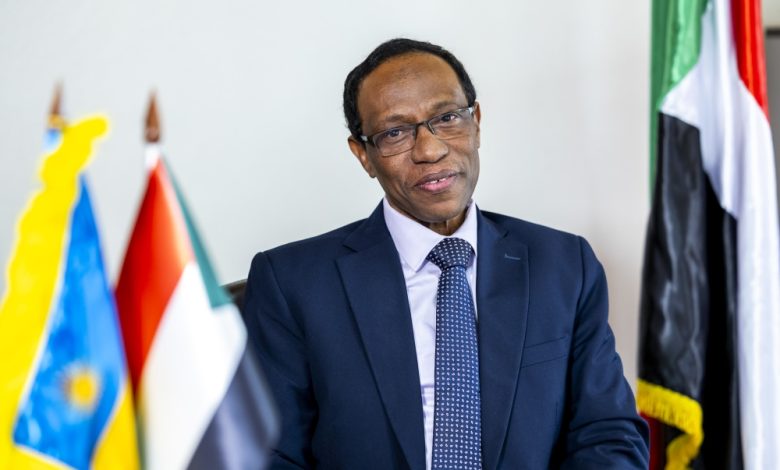
Sudan Events – Agencies
Sudan and Rwanda have the potential to boost their relations, through trade and economic development; social, cultural and academic cooperation as well as peace and security initiatives, says Khalid Musa, the Chargé d’Affaires at the Sudanese embassy in Kigali.
In a wide-ranging interview with The New Times’ Moise Bahati on Wednesday, April 24, the envoy Musa spoke at length about Sudan’s bilateral relations with Rwanda, trade and investment opportunities as well as social and cultural exchanges between Rwandans and the Sudanese.
He also spoke about the ongoing conflict in his country which has displaced close to ten million people and seen thousands of deaths and the region-led efforts to return normalcy in the vast African country. He expresses willingness that Sudan will be rebirthed from the ashes of war more stronger than before.
Excerpts:
How would you describe the state of diplomatic relations between Sudan and Rwanda?
We actually have a historical relationship because we belong almost to the same region. We are all Eastern African countries; we are part of the Great Lakes Region. We have a lot of social similarities between the people of Rwanda and Sudan. We are both Pan Africanist by historical orientation.
We appreciate Rwanda’s help in 2003, with peacekeepers during the Darfur crisis at that time. The first African peacekeepers came from Rwanda and they helped Sudan to regain stability and peace.
They have left a very good impression and reputation. Officially, we opened our embassy here in 2013. This was just like a manifestation of a diplomatic representation but our relationship goes back before the opening of the embassy. I would say we have very good relations at the political level.
The good example was the high-level visit of the Vice President Malik Agar and his meeting with His Excellency President Kagame and the participation of Sudan with high-level officials at the 30th commemoration of the Genocide against Tutsi.
At the African Union, we appreciate the leadership of President Kagame in the reform programme. He is one of the leaders in Africa with wisdom and guidance. We have also benefited a lot from that at the African Union.
Bilaterally, we have very strong relations. Definitely, we are not satisfied by any kind of trade exchange because of the current civil war. We had very ambitious plans before, but the war cut everything down.
How many Sudanese people are in Rwanda and in which sectors are they involved?
Our assessment is that there are more than 3,000 Sudanese living here. And I would like to say that they’re coming here not as refugees, but they are really contributing to the life of Rwanda, in terms of the social fabric, and in terms of economic, cultural, and academic exchanges. We have more than 1,000 students studying in Rwandan universities.
In terms of investment, we have a small business community but it is very efficient. One of the promising investments is in education. We have a branch of a Sudanese university here and more is coming.
We have some projects in the construction sector, poultry, farming, services, import and export as well as other small businesses in other fields. The total investment of the Sudanese community in Rwanda exceeds $50 million, according to our assessment.
How could the recent changes in Sudan impact your foreign policy, particularly the relations with Rwanda and other African countries?
Right now, the main challenge of Sudan’s foreign policy is to stop the war. We need to stop the suffering of the citizens and destruction of the country by winning the war and restore our dignity. We would definitely like to bring our country back on the right track of history. Before the war, we were focused on a democratic transition.
The Sudanese people have an aspiration for stability and peace and real democratic transition and elections. But the RSF coup against the Sovereignty of the state aborted this hope. Right now, to be honest, we need the true friends of Sudan to help us stop the war. We are depending on our real friends around the world. One of them is Rwanda with the wisdom and leadership of His Excellency President Paul Kagame.
When the war is over, we will come back to the right track, and revive our interest in bilateral relations. However, Sudan needs Rwanda very much in terms of social and political support to overcome this crisis and to have very good relations as we have enjoyed before and now.
There have been a number of attempts at peace talks. What should be the way to end this war?
We are definitely open for a peace deal. It is very important. Any war in the world will end with negotiations and peace deals. The Sudanese government is open to all initiatives. We have dealt with different initiatives coming from the African Union, from IGAD, from Jeddah Forum supervised by the United States and Saudi Arabia.
We were engaged in different other forums, but unfortunately the Rapid Support Forces are not honoring their commitment. The Declaration of Principle that came out of Jeddah Forum before has not been honored. It was clearly stated that the RSF should vacate cities, homes and civilian facilities. My own personal home is occupied by RSF and the rest of the Sudanese people as well. They have snipers on the top roof of any houses in Sudan.
We are committed to any call for peace to be there, but it should be based on two conditions: One, it should meet the aspirations of the Sudanese people and second, the RSF should honor their commitment to the Declaration of Principle. Furthermore, they should go out and vacate all the civilian facilities, all the citizens’ homes and properties and gather all their troops in certain areas accordingly.
What role can Sudan and Rwanda play in addressing issues of regional security, economic development, and environmental sustainability?
There is a programme at the African Union called “Silencing the Guns” and it is one of the main pillars of the African Union policies. We need to work together to silence the guns and that needs a lot of political effort in terms of bringing together the collective will of the African continent and winning the support of the international community to help in that direction based on African needs not by imposing their agenda.
We also need a joint venture programme to encourage the private sector to work together on big projects to serve the best interest of the people of the two countries.
Conflict resolution and peace building are crucial aspects of diplomatic engagement. Do you find Rwanda a reliable partner in achieving this?
Rwanda has a very good record in the world as one of the top donating countries in terms of peacekeepers. Rwanda has had successful missions all over the world and it has a very good reputation in peacekeeping in the region, in Darfur where they helped to stop the war and bring stability. And this role is highly appreciated by Africans, and by my country.
Rwanda is a very reliable partner in peacekeeping and has vast experience.
I don’t know what the upcoming peace settlement will be in Sudan; but if the security arrangement in the future needs any African contribution, given the good track record and our friendly relations, Rwanda will definitely be at the top of the list for Sudan to have this experience. So, we’re expecting Rwanda to contribute to our peace and stability in the future by all means possible for the better interest of our two countries.
Coming back to trade and investment, what specific opportunities have you identified for bilateral exchanges?
Rwanda and Sudan have great potential in trade and economy. Sudan is one of the biggest countries in Africa, we are the third in terms of total land area, number six in GDP (pre-war) and in the top five in Africa with natural and agricultural resources such as mineral resources, livestock and other kinds of resources you could imagine.
In terms of agriculture, Rwanda’s main export products are coffee and tea. We are the main importer of coffee and tea in Eastern Africa. We would like to import coffee and tea from Rwanda.
We are importing from other East African countries and now we need Rwandan tea and coffee in Sudan because of the quality and because we would like to promote our trade exchange.
Before the war, we had a project on a sugarcane factory here. Kenana Sugar Company visited Rwanda and they were surveying the market to build a sugar factory. This will be one of the main projects that we will resume after peace has returned in my country.
Are there any plans to promote Sudanese culture and arts in Rwanda to enhance people-to-people connections and cultural exchange?
Our 3,000 Sudanese people here, girls and boys, students and adults at all levels are engaging positively in the Rwandan community, in university, in businesses as well as other professions.
We have a good number of Sudanese doctors and consultants in different hospitals. They are teaching, others are working in the hospitals. We’re contributing to the health sector, the economy and the academic field and this will expand in the future. Sudanese food and grocery stores at the heart of Kigali . I have seen similarities in folklore dancing between our two countries. We have just concluded a football championship for the Sudanese community which was aimed to promote social integration in Rwanda in the spirit of sport and culture.
How do you envisage the future relations between Rwanda and Sudan?
We are interested in boosting and promoting relations between Rwanda and Sudan to be an example of how Africans work together and achieve progress together. This country has had a very successful experience in terms of stability, progress and development and strong leadership and stable institutions. I think this will be one of the projects that we will engage in after the war.
Through Gacaca courts, the Rwandan people applied transitional justice based on their local, traditional way of justice. They didn’t invite any foreign intervention, but they have done justice according to the traditional African heritage. We would like to benefit from that and it will be a very important transitional mechanism to achieve national building, social reconciliation, peace and stability.
In terms of trade, cultural and academic exchanges, we are expecting more students to come. This will strengthen our cultural and academic exchanges.
In terms of investment, a lot of Sudanese people are bringing more investment in different sectors: food, poultry, construction, and services. We have great potential for bilateral relations. And after peace has returned, doors will be open for more trade and economic exchange.
Before the war, we were supposed to have real cooperation in civil aviation. Our Sudanese airline would like to operate flights to Kigali and I would like to see RwandAir coming to Sudan. This will be a very important route. Direct commercial flights would be feasible and this will be one of the ways to strengthen our corridor for economic trade and cultural exchange.
